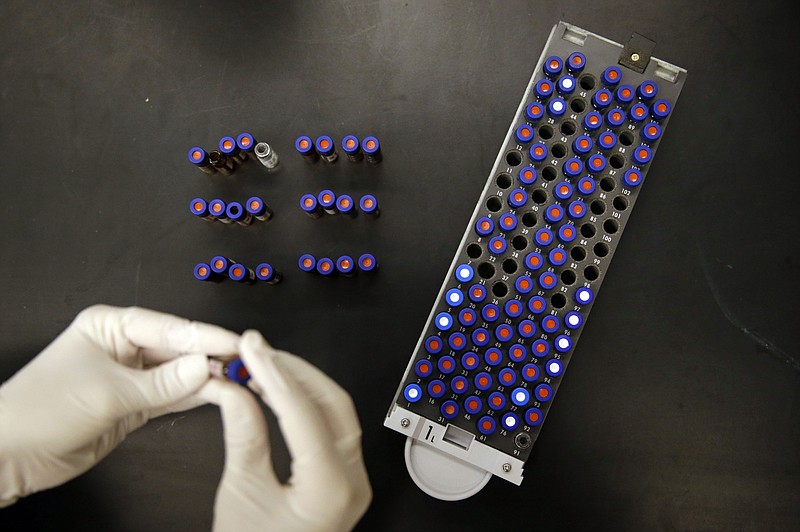NASHVILLE -- Vanderbilt University is one of nearly 100 research institutions to receive federal funding for fetal tissue research between 2011 and 2014 - a practice that has unleashed a furor on Capitol Hill after anti-abortion activists recently released undercover videos pertaining to such research.
The private Tennessee university received $10 million in grants from the National Institutes of Health for fetal tissue research in 2011 and 2012, most of which funded a diabetes study that won a national award for its director last year.
Anti-abortion activists' release of undercover videos of Planned Parenthood discussing the sale of fetal tissue has spurred a backlash among some politicians on Capitol Hill and on the Republican presidential campaign trail.
University laboratories defend their research, saying tissue that would otherwise be thrown out has played a vital role in lifesaving medical advances and holds great potential for further breakthroughs.
Fetal cells are considered ideal because they divide rapidly, adapt to new environments easily and are less susceptible to rejection than adult cells when transplanted.
The Associated Press reported this week that 97 research institutions - mostly universities and hospitals - received a total of $280 million in federal grants for fetal tissue research from the National Institutes of Health between 2011 and 2014.
The Vanderbilt University Medical Center received $4.3 million in 2011 and $5.7 million in 2012. Most of the money was earmarked for the Coordinating Center for Beta Cell Biology Consortium, which has since closed.
"The grants were to support VUMC's portion of research that contributed to a national consortium seeking to answer questions about the biology of the pancreas and its relationship to diabetes," Vanderbilt spokesman John Howser said in an email.
"The goal of this research was to shed new light on, and hopefully find new treatments, to help the nearly 30 million people here in the U.S. suffering from diabetes."
Vanderbilt would not say where it obtains the fetal tissue used in its research. A university policy last updated in July requires consent from the woman for donation of tissue of an aborted fetus for research purposes.
Gov. Bill Haslam this week sent a letter to fellow Republicans this week seeking to reassure them that fetal tissue sales are illegal in Tennessee and explaining that the state only provides money to Planned Parenthood indirectly as a subcontractor to other groups receiving state money for contraceptive services and HIV testing. Haslam's administration tried to end those subcontracts in 2011 but was prevented from doing so by a federal court order.
Haslam said in the letter that he had heard from many caucus members who "share our shock and concern at the callous disregard for life displayed in undercover videos of persons employed by Planned Parenthood."
"You understandably want to make sure the activities discussed in these videos are not happening in Tennessee."
Jeff Teague, the president and CEO of Planned Parenthood of East and Middle Tennessee, said the organization does not participate in tissue donation anywhere in the state.
Mark Magnuson, the Vanderbilt professor who headed the consortium involving 185 investigators from 106 institutions around the world, received a national leadership award for his work from the National Institute of Diabetes and Digestive and Kidney Diseases last year.
According to a Vanderbilt press release at the time, a major focus of the consortium was to learn how to turn human embryonic stem cells into functional beta-like cells and other hormone-producing cells of the pancreas. The aim was to use beta-like cells to replace those destroyed by type 1 diabetes on a larger scale - and in a more cost-effective way - than transplanting donated islets.
The cells were also used to study the development of diabetes and test new drugs and ways to protect cells.
St. Jude Children's Research Hospital in Memphis also received an NIH grant of $403,200 in 2011 to research treatments for retinal tumors. The hospital said in a statement that the "research could have implications for treatments to restore sight to millions of people with blindness caused by retinal degeneration."
Vaccines have been one of the chief public benefits of fetal tissue research. Vaccines for hepatitis A, German measles, chickenpox and rabies, for example, were developed using cell lines grown from tissue from two elective abortions, one in England and one in Sweden, that were performed in the 1960s. And scientists say fetal tissue was key to the development of a potential Ebola vaccine that has shown promise.
